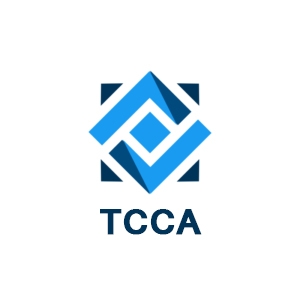A Digital Signature Certificate (DSC) establishes the identity of the sender while filing or sending documents electronically through the internet. Similar to how a handwritten signature establishes the identity and/or consent of the signee in a paper document, a digital signature certificate establishes the identity and/or of the signee in electronic documents. In India, all Government Departments accept digitally signed documents from CCA like eMudhra, Sify, N-Code, etc.
Class 2 or Class 3 Digital signatures with a validity of 2 or 3 years can be purchased through online process. There is no requirement for submitting any documents through courier and it will help you apply to obtain Class 2 or Class 3 DSC from Certifying Authority like E-Mudhra, Sify or N-Code. All our digital signatures are provided in FIPS compliant ePass USB tokens to protect the signature until the end of validity.
TYPES OF DIGITAL SIGNATURES
Class 2 DSC
Class 2 Digital Signatures are used to verify the identity of a person against a pre-verified database. This type of Digital Signature to file the documents with the Ministry of Corporate Affairs (MCA), GST and the Income Tax Department. Class 2 Digital Signatures are issued to a person on a USB token after verifying self-attested copies of identity/address proof and eKYC process completion. It is Class 2 DSC tokens that are used for company registration, LLP registration, IT return filing, GST registration, GST return filing, MCA annual return filing and IE code registration.
Class 3 DSC
Class 3 Digital Signatures are the most secure form of Digital Signature Certificates and are used to establish the identity of the signee in e-commerce and e-tendering. For instance, many of the online e-tenders require auction participants to participate in the bidding using a Class 3 Digital Signature to establish their acceptance of the bid electronically. Class 3 Digital Signatures are issued only after the Registering Authority verifies the identity of the applicant, in-person.
DOCUMENT REQUIRED FOR DIGITAL SIGNATURE (DSC)
The documents required to apply for digital signature differs based on the applicant type as follows:
Documents Required for Indian Nationals
In case the applicant is an Indian National, please submit the following documents for identity and address proof:
Identity Proof
- Passport
- PAN Card of the Applicant
- Driving License
- Post Office ID Card
- Bank Account Passbook containing the photograph and signed by an individual with attestation by the concerned Bank official
- A photo ID card issued by the Ministry of Home Affairs of Centre/State Governments
- Any Government-issued photo ID card bearing the signatures of the individual
Address Proof
- AADHAAR Card
- Voter ID Card
- Driving License (DL)/Registration Certificate (RC)
- Water Bill (Not older than 3 months).
- Electricity Bill (Not older than 3 Months)
- Latest Bank Statements signed by the bank (Not older than 3 Months)
- Service Tax/VAT Tax/Sales Tax registration certificate
- Property Tax/ Corporation/ Municipal Corporation Receipt
Documents Required for Foreign Nationals
In case the applicant is a Foreign National, please submit the following documents for identity and address proof:
Identity Proof
- Attested copy of Applicant Passport
- Attested copy of VISA (If the applicant is out of the native country).
- Attested copy of Resident Permit certificate (If the applicant is in India)
Address Proof
- Attested copy of Applicant Passport
- Attested copy of any other Government-issued Address Proof
The identity and address proof of foreign nationals must be attested by the following authorities:
- Embassy of Native Country (If the applicant is out of the native country)
- Apostatized by Native Country, after Public Notary (if the country is in Hague Convention)
- Consular by Native Country, after Public Notary (if the country is not in Hague Convention)
Using your Digital Signature
You will be using your digital signature for various reasons like filing GST return, filing income tax return, etc. For security reasons, the Digital Signature Certificate is stored on a hardware device, a Cryptographic USB Token known as ePass. The USB token can only hold your Digital Signature Certificate. The USB token is also protected and incapable of storing any other documents or information.
To use your Digital Signature Certificate token, follow the steps below:
Step 1: Before plugging in the USB token, please download and install the e-pass 2003 token driver.
Step 2: After installation, plug-in the USB token into the USB port of your computer and enter the password. You can change the password on the token by selecting the option “CHANGE USER PIN”.
Step 3: Once you have signed a document, unplug the USB token from your computer and store it in a safe place.
IMPORTANT: Never click the initialize/delete button in ePass 2003 driver menu. If you click on either the initialize or delete button, the Digital Certificate will be deleted, and the token will become unusable.
Never lose the password for your USB token or inadvertently entering the wrong password multiple times. In case a password is lost, or the USB token is locked, there is no way to retrieve or use the Digital Signature. You will have to purchase a new Digital Certificate and USB token
